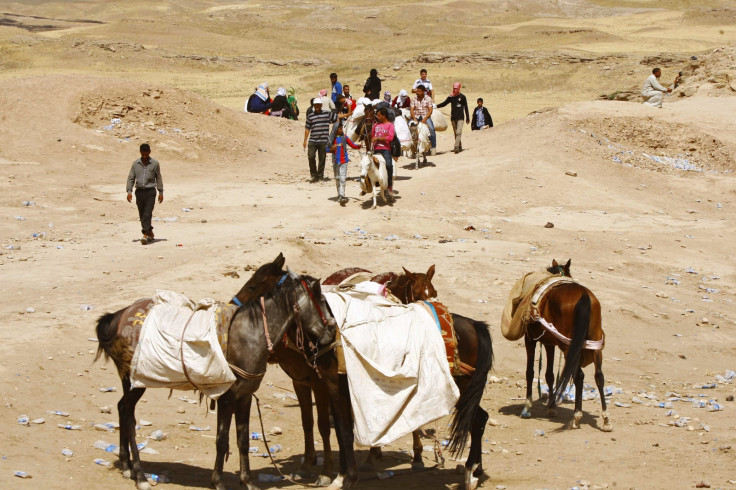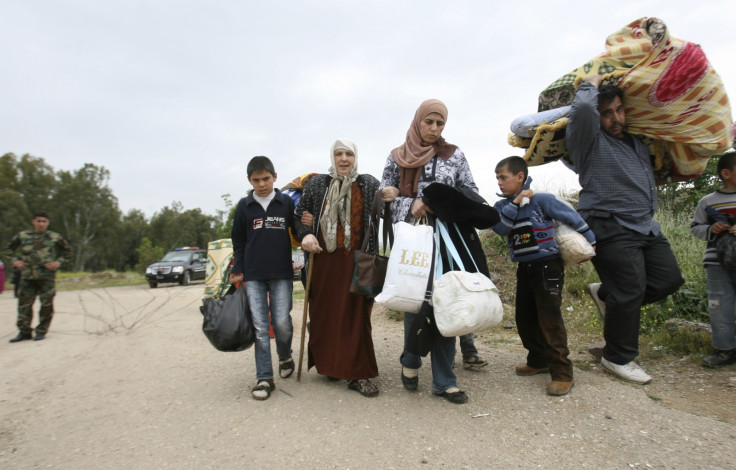Syria: Emergency vaccinations along Lebanon border amid growing concerns over animal diseases

There have been growing concerns over the spread of animal diseases in Lebanon as some of the 1.5 million refugees fleeing the conflict in Syria have brought with them large numbers of unvaccinated sheep, goats, and cattle.
The United Nations' Food and Agriculture Organization (FAO) has started carrying out the second phase of a campaign to immunise as much of the country's livestock as possible, with a target of vaccinating all animals.
The campaign aims to cut down the numbers of animals becoming ill or dying due to highly contagious but preventable diseases, which can cause high mortality and morbidity in animals, and in turn have serious socio-economic and sometimes public health consequences.
Lebanon, which now has the highest per capita ratio of refugees in the world - around 25% of total population - is hoping to protect vulnerable people living in rural areas, who are already seeing a strain on their natural resources because of the spill-over effects from the humanitarian crisis in Syria.
Nearly a million animals at risk
As many as 70,000 cows and around 900,000 sheep and goats could be exposed to highly contagious diseases if left untreated, according to Lebanon's Ministry for Agriculture.
"The most common problem we are having is animal fever," said a farmer in Lebanon's eastern Bekaa Valley, one of the 60% of livestock farmers in the country who depend on dairy animals as their main source of income.

"Some animals are dying. The viruses were affecting our income. This year the cattle got the vaccination so we hope the result will show in the near future."
The three most prevalent animal diseases detected in Lebanon include lumpy skin disease, foot-and-mouth disease and peste des petits ruminants, also known as "goat plague", which is highly contagious and characterised by a high death rate in a short period of time.
Challenges ahead
But the FAO's goal is expected to be difficult to achieve because of the challenges in reaching some of the more remote areas and in gaining the confidence of the farmers and pastoralists residing there, the agency said.
The project, which has received funding from the UK's Department for International Development (DFID), follows on from a successful initial vaccination programme in 2014 that was credited with stopping any widespread animal disease outbreaks.
© Copyright IBTimes 2024. All rights reserved.






